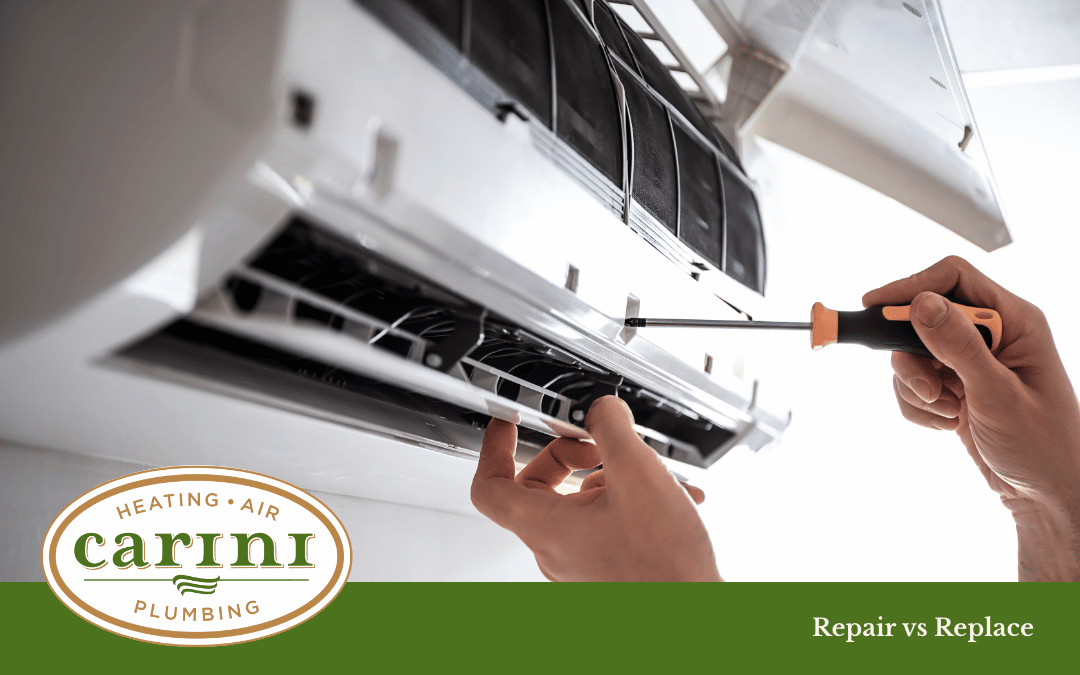According to EnergyStar, the average lifespan of an HVAC system is 15-20 years. Even with annual preventive maintenances, there comes a time when your system will need to be replaced. It can be costly to replace your old traditional system with a new electric heat pump, so here are some things to consider when deciding if you should fix or replace your old system.
Age of System
As mentioned above, the average lifespan is 15-20 years. Although some furnaces can last much longer, if your system is well above 20 years old, it might be beneficial to upgrade your system because your cost of repairs will add up over time, and your system will be much more inefficient than some of the newer models available on the market.
Safety Hazards
If your system is causing a potential hazard, it is best to get it checked out immediately by a professional. Things such as a cracked heat exchanger pose a serious threat to you and your family. Although the system will still run, poisonous gases such as carbon monoxide, can leak into your home causing illness and death. Systems with a cracked heat exchanger should never be ran and should be replaced immediately. A cracked heat exchanger cannot be repaired, so be sure to have it examined by a certified technician and replaced if necessary. Electrical issues should also be addressed immediately to prevent shorting and possible fire hazards.
Carbon Footprint
If one of your main concerns is protecting the environment, it will be a good idea to upgrade to a high SEER rated system. SEER stands for “seasonal energy efficiency ratio”. The more efficient your system is, the less energy it will take to heat or cool your home, which also means lower energy bills and lower carbon footprint. EnergyStar qualified air conditioners must have a minimum SEER rating of 14.5 to qualify. Older AC systems use R-22 refrigerant, which is being phased out, and eventually unattainable. If your system uses R-22, it would be wise to replace it before it is phased out. It is also a good idea to see if any rebates or incentives are currently available to help cover costs of replacing your old system for a new electric system.
Reliability
If you find yourself calling a technician to come out a couple times a year because your system is breaking down, it will be better to replace it in the long run. Much like a car, you can keep dumping money into it, but eventually you will save headaches and money by switching to a new system.
Annual repair costs
If your system is failing to due minor issues like a dirty air filter, or clogged drains, this can be solved with preventive maintenance. However, if your repair costs are costing you thousands every time a technician comes out, it would be a good indication to replace it.

